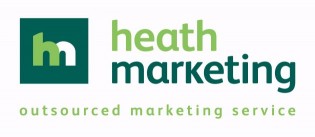It’s been seven years since GDPR arrived, and it’s still as relevant as ever for UK businesses.
Since Brexit, the UK GDPR and Data Protection Act 2018 continue to shape how businesses collect, store and use customer data. The principles remain clear: transparency, accountability, and protecting individuals’ rights over their personal data.
While some businesses still see GDPR as a compliance headache, the smartest see it for what it really is: an opportunity to build trust and to prioritise quality over quantity in your marketing and customer communications.
Here are some reminders to keep ensure you operate best practices around the data you hold:
1️⃣ What data do you hold?
Your data audit should clearly record:
✅ What data you hold (name, email, phone, transaction history, etc.)
✅ Why you hold it (contract fulfilment, consent, legitimate interest)
✅ How you use it (newsletters, billing, targeted marketing)
You may only hold email addresses, or you may hold sensitive data depending on your services. The key is clarity and purpose.
2️⃣ Where did the data come from?
Whether it’s from online sign-ups, networking events, referrals, or purchased leads, you must:
✅ Know how you acquired the data
✅ Be able to evidence that you have the right to use it
✅ Have clear, documented consent where required
Purchased lists often remain a compliance risk if individuals have not consented to receive your communications. If in doubt, remove or cleanse these contacts.
3️⃣ How often do you communicate?
When auditing, consider:
✅ How frequently you email or message contacts
✅ Whether your messages are relevant to the segments receiving them
✅ Whether your contacts are actively engaging
If contacts have not engaged with your emails for over 24 months, it’s often best practice to remove or re-permission them, improving list hygiene and engagement rates.
4️⃣ How are your lists managed?
You need to know:
✅ Where your lists are stored (CRM, email marketing platform, spreadsheets)
✅ How unsubscribes are handled
✅ How data access and deletion requests are managed
Most email platforms now automate opt-out and GDPR compliance tools, but it’s your responsibility to use these correctly and document your processes.
GDPR is a marketing advantage, not just a compliance task
A 2024 DMA report found that consent-based, well-segmented email lists achieve up to 50% higher open rates compared to non-segmented campaigns, proving that a cleaner, more engaged database is good for your business.
GDPR isn’t just about avoiding fines. It’s about building trust and ensuring you are communicating with people who actually want to hear from you.
By keeping your database clean and focusing on engaged contacts, you can reduce your workload, improve deliverability, and enhance the effectiveness of your campaigns.
Ready to review your database?
If you’re unsure where to start with your next data audit, or if your marketing could benefit from a cleaner, more engaged email list, we can help.
Email hello@heathmarketing.co.uk
Not only will the audit of your database ensure you’re complying to the General Data Protection Act, it will also help you target your communications more effectively by targeting an engaged audience, and lessen the mass of unwanted emails sent per day. As we so often say – it’s quality over quantity and rather than being feared, GDPR should be seen as a tool to enact this.
For any help or advice with your GDPR audit, contact us here.
